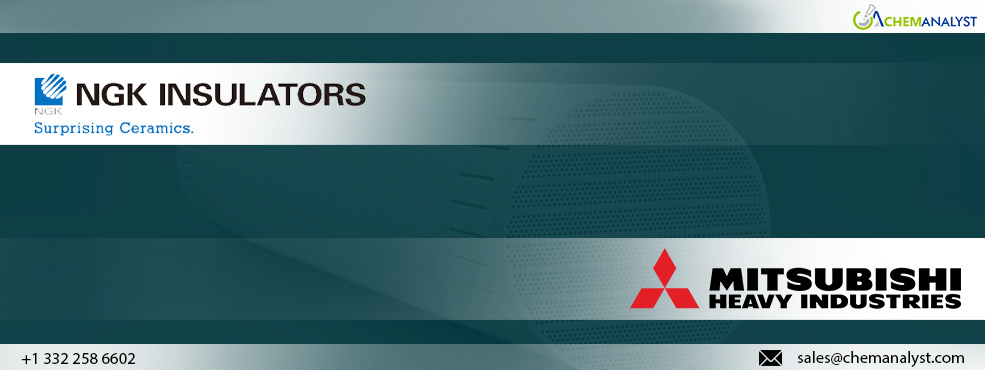Welcome To ChemAnalyst

Mitsubishi Heavy Industries, Ltd. (MHI) and NGK INSULATORS, LTD. (NGK) will collaboratively develop two membrane dehydration systems aimed at reducing costs and optimizing manufacturing efficiency for Bioethanol and e-Methanol, addressing the anticipated rise in demand for clean fuels and raw materials.
In this project, MHI and NGK will start developing two types of membrane dehydration systems: one for Bioethanol and one for e-Methanol. The membrane separation system designed for Bioethanol will replace the traditional, energy-intensive dehydration process, significantly reducing the energy consumption in Bioethanol production.
The second system will be designed to replace the dehydration process in e-Methanol production, which uses hydrogen and CO2 as raw materials. By implementing a membrane separation system, the companies aim to substantially lower the energy consumption in e-Methanol manufacturing, positioning it as a promising next-generation clean fuel.
For this project, MHI will leverage its extensive global expertise in delivering methanol and chemical plants, as well as its advanced technologies for handling methanol and various chemicals. NGK will contribute its profound knowledge of sub-nano ceramic membrane technology and its unique film deposition technology, developed for chemical processes and water purification. NGK's contribution includes the world's largest ceramic membranes, renowned for their exceptional separation accuracy and durability. In response to the anticipated demand growth for Bioethanol and e-Methanol as clean fuels and raw materials, MHI and NGK will jointly advance the development of these systems, aiming for real-world deployment and the establishment of a stable supply chain.
Bioethanol, a clean fuel derived from plants like corn and sugarcane, is extensively used as automotive fuel in the United States and Brazil. It is also anticipated to play a significant role in the development of Sustainable Aviation Fuel (SAF) as a key raw material. Meanwhile, e-Methanol is emerging as a promising next-generation clean fuel, particularly for marine applications, and is expected to see significant global market growth.
MHI Group is implementing a growth strategy focused on Energy Transition, targeting decarbonization in energy supply to achieve Carbon Neutrality by 2040. By developing and commercializing high-efficiency manufacturing processes for hydrogen-free Bioethanol and e-Methanol, the Company aims to swiftly establish and deploy decarbonization technologies, contributing to the creation of a sustainable, carbon-neutral world.
NGK Group has developed a "Carbon Neutrality Strategic Roadmap" featuring four strategies aimed at contributing to a carbon-neutral society. This roadmap includes the development and provision of hydrogen and Carbon Dioxide Capture, Utilization, and Storage (CCUS) technologies and products. NGK is committed to leveraging its core ceramic technology to achieve breakthroughs that were previously unattainable, ultimately ensuring that essential devices are implemented in society and making a significant impact through its business initiatives.
We use cookies to deliver the best possible experience on our website. To learn more, visit our Privacy Policy. By continuing to use this site or by closing this box, you consent to our use of cookies. More info.
